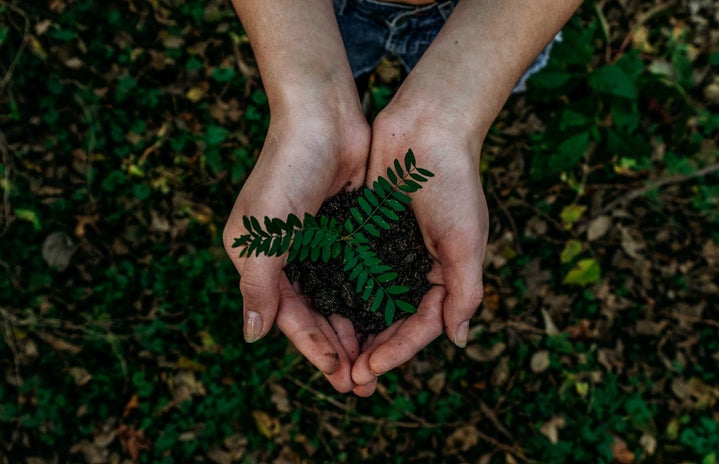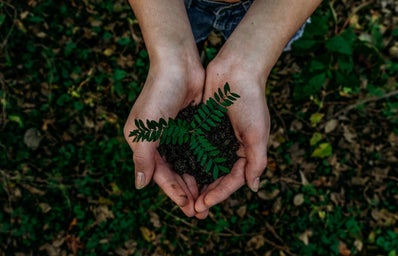During the COVID-19 pandemic, I, like many others, have picked up a few new hobbies; biking, collecting, and caring for plants, sewing, and knitting just to name a few. When I reflect on all I have done during this pandemic, I realize that the majority of hobbies I have introduced myself to were at one time not hobbies at all, but essential ways of life. Sewing, knitting, and caring for plants (also known as farming) have been staples in the lives of the average person before the industrial revolution when these time consuming, tedious tasks became mechanized, mass-produced, and mass cultivated.
We live in a super industrialized society, where almost everything is mass-produced, almost no one grows their own food supply, and the need to complete basic tasks such as sewing and farming aren’t necessary anymore. So the question must be asked; if these tasks aren’t necessary anymore, why are people wanting to learn how to do these time-consuming, tedious tasks? I asked this question to myself, and I immediately answered with; what if society fails and we are forced to live in an agricultural society? Have I been subconsciously preparing myself for a scenario where I must do everything from scratch as a response to the inadequate handling of the pandemic in the United States? To which I respond with; yes.
If one thing is made clear in this pandemic is that when there is a time of crisis where people must stay at home and the country rests at a standstill, the flaws of a systemically oppressive government are put in the spotlight. When people lost their jobs during the pandemic, the government provided little relief in the form of stimulus checks that had many people wondering how they could make $1,200 dollars last over the course of a month. The average person relies on companies and businesses to get through day to day life; they buy groceries from the grocery store, clothes from a clothing store, and other basic necessities from one-stop-shop stores. When phrased in this way, the problem is immediately glaring; our capitalistic society has forced its citizens to spend money in order to have any quality of life.
Now, industrial society definitely has many pros that outweigh the cons, such as the increased amount of jobs a person can choose, modern medicine that helps prevent sickness and death, and the many many choices a person has in almost every aspect of their lives. In our society, average people have more individual freedoms than ever, but at what cost? Capitalism is defined by the class struggles between the working class and their employers and the competition over the means of production. In the United States, there is a huge class struggle that exists, where the extremely poor remain poor in a devastating cycle perpetuated by the top 1% of society who own the majority of wealth in America. The middle working class is also a part of this struggle, having to work sometimes unfulfilling jobs just to get by so they don’t become poorer, but never being able to work enough to obtain the type of wealth reserved for the 1%. Capitalism ensures that consumers have many choices per product which can lead to an obscure sense of what is needed and what is wanted, increasing the amount of money people spend on things that aren’t necessarily needed rather than saving money to increase their wealth.
I’m sure you’re wondering; how did we get to this point when we were just talking about new hobbies? I will gladly explain this to you! If every single person stopped buying food from the grocery stores, clothes from clothing stores, etc., and started making their own clothes and growing their own food, a capitalistic society such as the United States would no longer be able to survive. This is a slippery slope however because so many institutions of our society are only functional by means of capitalism and the exploitation of the working class by their employers and the 1%. As much as the idea of self facilitating individual, basic needs are appealing compared to the never-ending machine of capitalism, it is very unrealistic. Every single person contributes to capitalism in more ways than one, and it is simply not affordable to not rely on cheap mass-produced products that most people use every day.
I started sewing, knitting, and taking care of plants because I knew it was a healthy way to keep me occupied with so much free time on my hands. However, as the pandemic continues on, I realize I am learning skills that allow me to be free of a capitalist society, even if the freedom is very insignificant. No society is perfect, and there are ways to exist without subscribing to a flawed system of government if you so choose. Even though it may not be completely necessary, learning basic tasks of self facilitation can be freeing and liberating; it is a stamp of rebellion and individuality in a routine, machine-like society.


